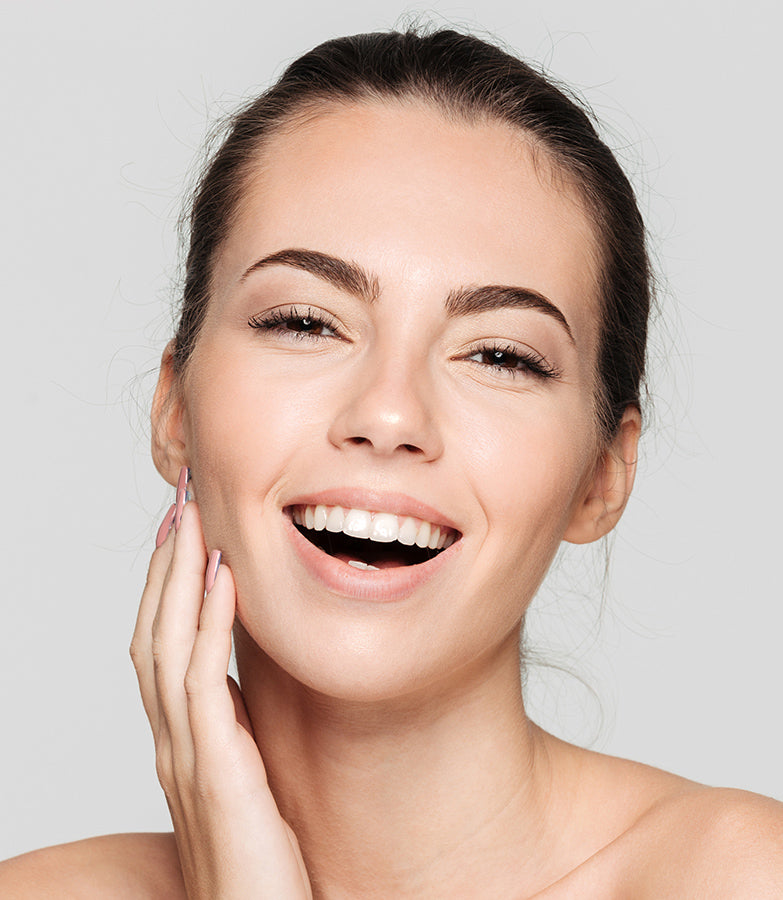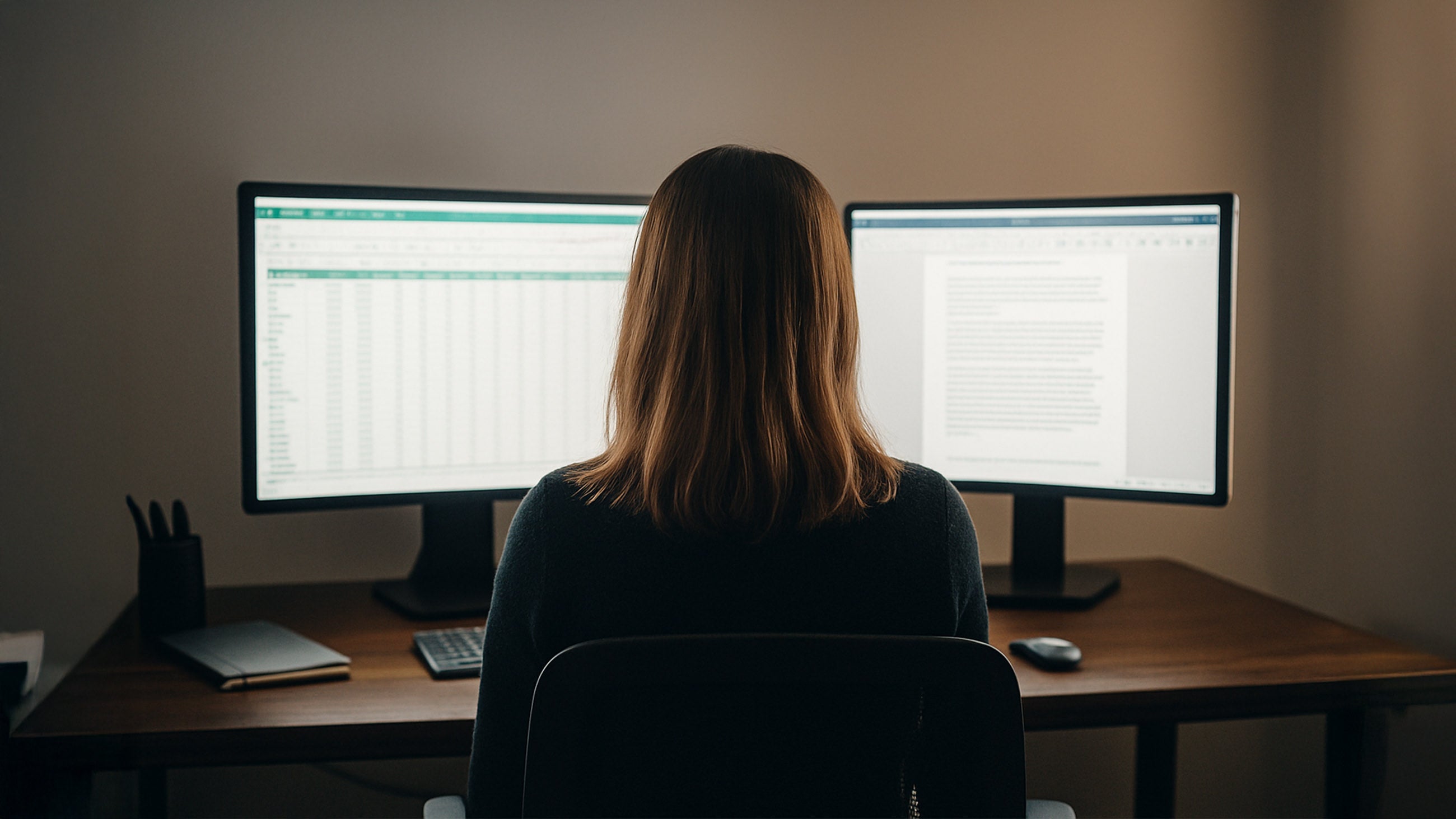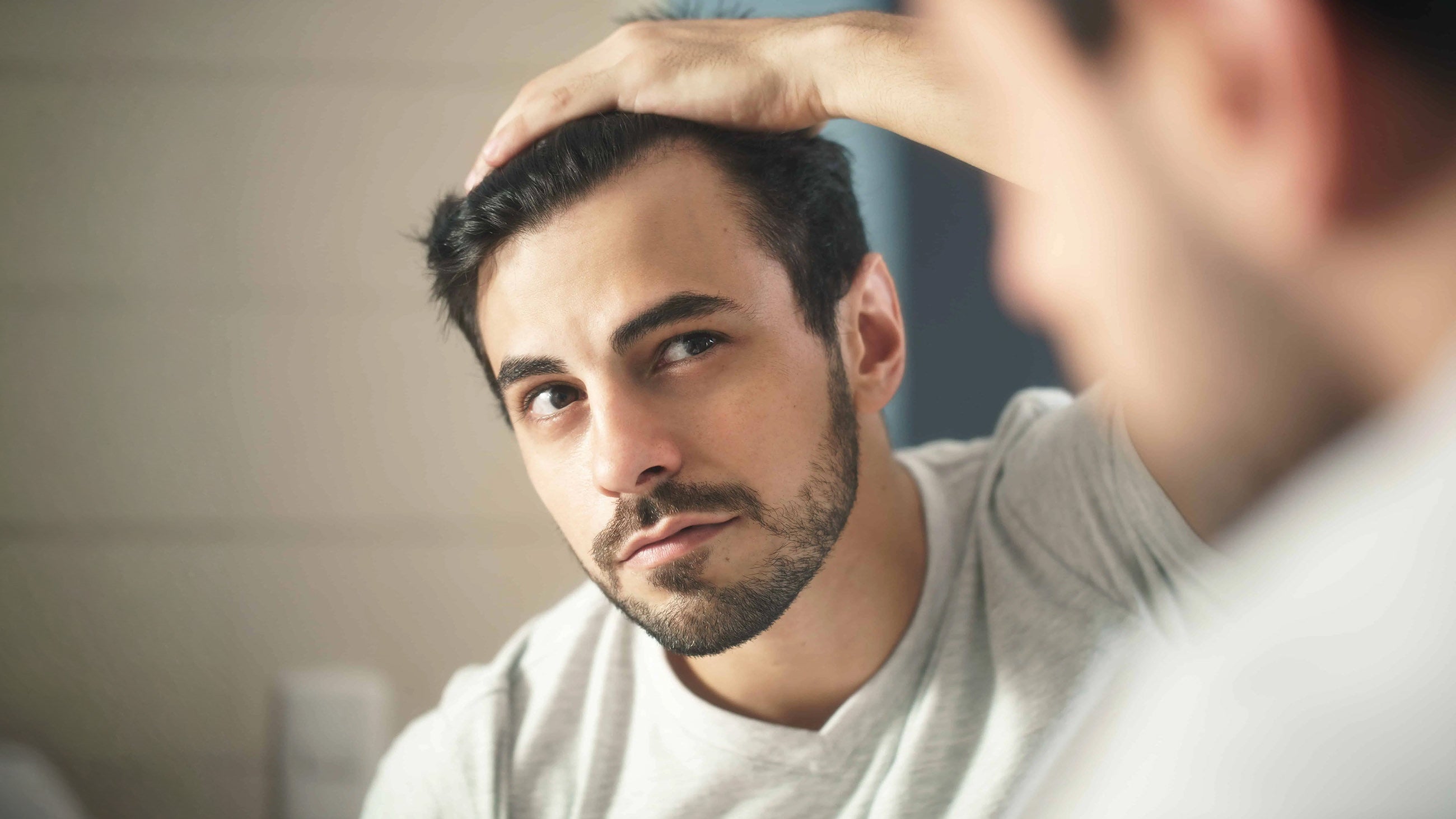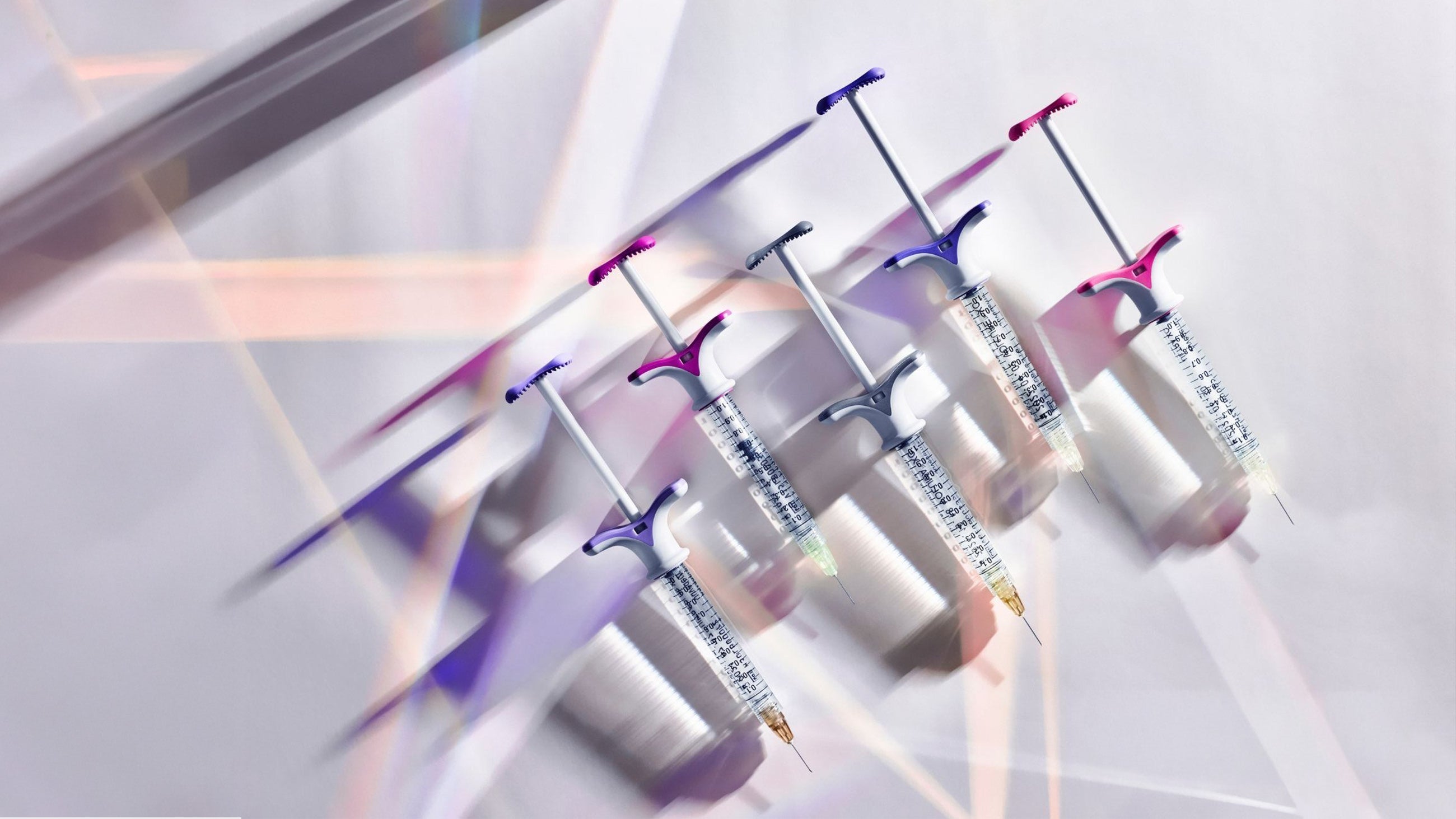You might think: “I spend all day inside. Why bother with sunscreen?”
But here’s the truth - your skin doesn’t get a “free pass” just because you’re behind a screen. Between blue light, window-filtered UV, and the cumulative wear-and-tear of indoor exposure, your skin is getting micro-damage all day long. That’s where sunscreen for screen use becomes non-negotiable.
In this article, we'll cover:
- What screen exposure does to skin (and why it matters)
- The science behind blue light and SPF
- Why you should wear SPF every day, even indoors
- How to choose the best sunscreen for screen use
- How our GlowLuxe™ and RadiantGaze™ products help
- A realistic, easy routine you’ll actually stick to
Let’s dive in - because your skin doesn’t know you’re indoors.
Why We’re All Underestimating Indoor Skin Damage
Most of us grew up believing SPF is only for beach days or sunny hikes. But think about it - your skin is exposed to light all day long, even indoors. Windows allow UVA in, overhead lights (especially LEDs) give off visible and blue light, and digital screens constantly emit short-wavelength light. Over time, that exposure accumulates.
Here’s the kicker: Skin damage adds up slowly. You might not see a sunburn, but you’ll start noticing dullness, uneven tone, or fine lines - especially along the cheeks and jawline.
This is why sunscreen for screen use is no longer optional for anyone who works with tech (ahem, that’s most of us).

The Science Behind Screens: What Happens to Your Skin
Blue Light = Digital Damage
Blue light (400–500 nm) comes from your phone, computer, tablet, TV, and even LED lights. Research shows it contributes to:
- Oxidative stress in skin cells
- Pigmentation in deeper skin tones
- Collagen breakdown and inflammation
👉 A 2021 study published in Antioxidants confirms that blue light can damage the skin barrier, generate free radicals, and accelerate visible aging.
📚 Source: National Institutes of Health
So even if you’re parked at your desk all day, your skin is still under attack - slowly and invisibly.

UVA Through Windows = Silent Aggressor
UVB rays might not pass through glass, but UVA does - and UVA is the main driver of aging. It reaches deeper into the skin and doesn’t cause immediate sunburns, so it often goes unnoticed.
💡 The American Academy of Dermatology urges daily sunscreen use, even indoors, to prevent photoaging.
📚 Source: AAD.org
If you're near a window or working with screens, your skin’s still “on.”
Do You Need SPF Indoors? 100% Yes.
| Myth | Truth |
| “No sun, no damage” | Indoor UVA + blue light = ongoing skin stress |
| “Screens don’t count” | Blue light contributes to hyperpigmentation and collagen loss |
| “SPF is for the beach” | Daily damage happens inside too |
Sunscreen for screen use protects against both visible and invisible light damage. Without it, your skin’s barrier weakens day after day.
Why Wear SPF Every Day (Even When You’re Inside)
Even small exposures matter when they’re consistent. You might not feel the damage today, but over weeks and months, here’s what happens:
- Micro-pigmentation builds up
- Fine lines begin forming earlier
- Skin loses elasticity from oxidative stress
That’s why wearing sunscreen for screen use every single day - even if you never step outside - is critical.
It's not just about sunburn. It's about preserving your skin’s health, texture, and glow long-term.

How to Choose the Best Sunscreen for Screen Use
Let’s talk ingredients and formulas. The best sunscreen for screen use needs more than just SPF numbers as not all sunscreens are created equal:
✅ Broad-spectrum protection (UVA + UVB)
✅ Iron oxides – ideal for filtering visible and blue light
✅ Antioxidants – to neutralize free radical damage from screens
✅ Tinted formulas – better for blocking high-energy visible light (HEV)
✅ Lightweight, non-comedogenic – so you’ll actually wear it
❌ Chemical-heavy big box sunscreens - Avoid these
Many mass-market sunscreens use chemical filters like oxybenzone, octinoxate, and avobenzone. These can cause skin irritation, hormonal-disruption concerns, or environmental damage (e.g. reef harm). Even more alarming: in Australia - the country with one of the highest skin cancer rates - 18 popular sunscreens were recently pulled from shelves after tests found their real SPF was far below what the label claimed. Some formulations labeled SPF 50+ returned as low as SPF 4 in independent testing.
If you read the ingredients contained in some of these big box sunscreens (if you can pronounce them), some of the ingredients are known to cause cancer. Your skin is your biggest organ, so be careful what you use.
Our Favorites? GlowLuxe™ + RadiantGaze™
At Fix Studios, we created two medical-grade formulas designed for screen-based lifestyles:
✨ GlowLuxe™
A breathable, tinted mineral SPF designed for use indoors and out.
It’s packed with antioxidants and iron oxides to block visible light. It glides under makeup, doesn’t pill, and gives a soft-focus finish. Get it here.
✨ RadiantGaze™
An under-eye SPF treatment with light-diffusing minerals and antioxidants.
Perfect for protecting the delicate eye area (a blue light hot spot), while reducing puffiness and brightening over time. Get it here.
Clients say they feel “naked” without them - and that’s the goal. Protection that feels good, looks good, and works.
What I Tell My Patients (and What They Learn)
One patient came in with new “sunspots” around her cheeks. Her routine? “I don’t go outside much.”
She worked from home, near a window, with two monitors glowing at her all day. We added sunscreen for screen use into her AM routine - specifically GlowLuxe™ and RadiantGaze™ - and within 6 weeks her pigmentation started to fade.
Now she wears it even on gloomy days and jokes, “My laptop was aging me the whole time.”
Build the Habit (Even If You’re Busy)
The easiest routines are the ones you don’t have to think about. Here’s what I recommend:
🪥 Keep GlowLuxe™ next to your toothbrush
🧴 Layer SPF after moisturizer - make it automatic
👁 Use RadiantGaze™ as your eye cream and protection
🔁 Reapply midday with powder SPF or mist if needed
🖥 Turn on night mode / blue light filters for backup
No stress, just habit stacking.
Bonus: Add Blue Light Barriers
These won’t replace SPF, but they can support it:
- Blue light glasses (protect your eyes from damage)
- Screen shields for your laptop or monitor
- Night mode on devices
- Antioxidant serums at night to repair any daily damage
Just don’t skip the sunscreen for screen use part - that’s your foundation.

Frequently Asked Questions
| Question | Answer |
| Do I really need sunscreen if I stay indoors? | Yes - screens and UVA through windows still damage skin. |
| What’s the best sunscreen for screen use? | Look for broad-spectrum, iron oxide-based, tinted formulas like GlowLuxe™. |
| Can blue light actually cause wrinkles? | Yes. Studies link it to collagen breakdown and oxidative stress. |
| Do tinted SPFs really work better indoors? | Yes. They block visible light more effectively than clear formulas. |
| Is reapplying necessary indoors? | Not as frequently, but if you sit near a window or under LEDs all day - yes. |
Conclusion: Screen-Proof Your Skin Starting Now
Even if you never step outside, your skin is still under attack from blue light, UVA, and ambient exposure.
Sunscreen for screen use is your first line of defense - every single day.
Using smart protection like GlowLuxe™ and RadiantGaze™, you get full-spectrum coverage, antioxidant support, and a routine that actually fits into your real life.
Want to find the best screen-safe SPF for your skin? Book a consultation and we’ll personalize your routine. You deserve skincare that protects your glow - not just your weekend.
😍 Bonus: If you love SPF, check our or SPF Is My BFF T-shirt, exclusively from Fix Studios.
If you’re looking to sun damage skin repair near me, Fix Studios offers treatments for sun damaged skin in Cincinnati OH and is located in Mason OH and conveniently located near Montgomery OH, Sycamore Township OH, Symmes Township OH, West Chester OH, Blue Ash OH, Loveland OH, Landen OH, Sharonville OH, Evendale OH, Fairfield OH, Hamilton OH, and other areas of Greater Cincinnati.
Disclaimer
This article is for informational purposes only and should not be considered medical advice. Results vary from person to person. Always consult with a qualified provider before starting any treatment.








Share:
9 Expert-Backed Ways to Use Collagen for Skin That’s Tighter, Smoother, and Radiant
Top 7 Medspa Treatments for Fall in Cincinnati & Mason (Book These Now!)